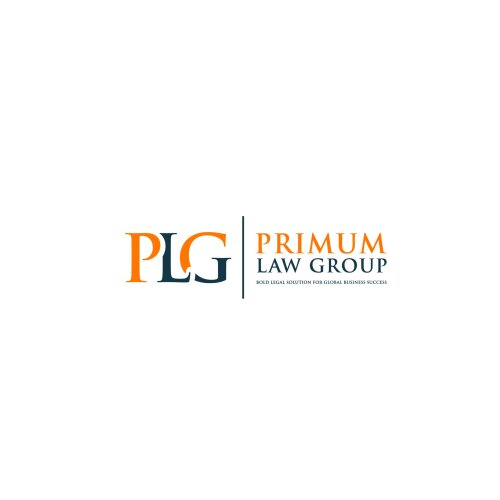Best Telecommunications and Broadcast Lawyers in United States
Share your needs with us, get contacted by law firms.
Free. Takes 2 min.
Or refine your search by selecting a city:
List of the best lawyers in United States
About Telecommunications and Broadcast Law in United States
Telecommunications and Broadcast Law in the United States encompasses the legal and regulatory framework governing the telecommunications and broadcasting sectors. This field is primarily overseen by the Federal Communications Commission (FCC), which is responsible for regulating interstate and international communications by radio, television, wire, satellite, and cable. The laws in this sector aim to ensure a fair, competitive, and innovative environment, while also protecting the interests of consumers and maintaining national security. This area of law is constantly evolving to keep pace with technological advancements and changing consumer demands.
Why You May Need a Lawyer
Individuals and businesses may require legal assistance in the field of telecommunications and broadcast for various reasons. Common situations include:
- Navigating regulatory compliance issues to ensure operations comply with FCC regulations and other laws.
- Negotiating and drafting contracts related to telecommunications services or broadcast content.
- Resolving disputes over service agreements, signal interference, intellectual property, or broadcast rights.
- Addressing licensing or permitting challenges necessary for operating within this industry.
- Assisting with mergers, acquisitions, or other significant business transactions involving telecommunications entities.
- Dealing with consumer protection issues or accusations of unfair business practices.
- Engaging in advocacy or litigation related to policy changes or regulatory enforcement.
Local Laws Overview
Key aspects of telecommunications and broadcast laws in the United States include:
- The Telecommunications Act of 1996: This major legislative reform aimed to deregulate the broadcasting and telecommunications markets to allow for greater competition.
- FCC Regulations: The FCC sets and enforces rules across various domains such as spectrum allocation, licensing, public safety communications, and competition policies.
- Broadcast Indecency Rules: Broadcasters must adhere to rules preventing obscene, indecent, or profane content during certain hours.
- Data Privacy and Security: Laws and regulations ensure that telecommunications companies protect consumer data and privacy.
- Universal Service Obligation: Requires service providers to contribute to the Universal Service Fund, which ensures affordable telecommunications services to all, including rural and low-income areas.
Frequently Asked Questions
What is the role of the FCC in telecommunications and broadcasting?
The FCC regulates interstate and international communications through radio, television, wire, satellite, and cable, ensuring compliance with laws designed to maintain fair competition and protect consumer interests.
Do I need a license to start a new broadcast station?
Yes, obtaining a broadcast license from the FCC is required to legally operate a new radio or television station in the United States.
What are the penalties for non-compliance with FCC regulations?
Penalties can include fines, license revocations, or other appropriate enforcement actions depending on the severity of the violation.
How can I resolve a dispute with a telecom service provider?
You may need to engage in negotiations, file a complaint with the FCC, or consider litigation if the issue cannot be resolved amicably.
What is spectrum allocation, and why is it important?
Spectrum allocation involves designating specific frequencies for different types of communication. It is crucial for avoiding interference and ensuring efficient use of limited frequency resources.
Can telecommunications companies monitor my communications?
While companies may collect certain data for service and billing purposes, they are subject to privacy regulations that protect consumer data from unauthorized monitoring or sharing.
What legal protections exist for consumers against unfair telecom practices?
There are various federal and state laws that protect consumers from deceptive practices and ensure fair billing, contract transparency, and service quality.
What is the Universal Service Fund, and how does it affect my bill?
The Universal Service Fund supports affordable telecommunication services in underserved areas. Providers typically include a charge to fund contributions on customer bills.
How are telecom mergers and acquisitions regulated?
Such transactions are subject to review by the FCC and other governmental bodies to ensure they do not harm competition or consumer interests.
What are broadcast indecency rules?
These rules prohibit the airing of obscene, indecent, or profane content during hours when children are likely to be in the audience, typically between 6 AM and 10 PM.
Additional Resources
Here are some resources that may provide further assistance:
- Federal Communications Commission (FCC): The regulatory authority for communications, offering guidance, resources, and a platform for filing complaints.
- American Bar Association (ABA) - Communications Law Forum: Offers resources and networking opportunities for legal professionals in this field.
- Telecommunications Industry Association (TIA): Provides information on industry standards and technological developments.
- Consumer Financial Protection Bureau (CFPB): Offers guidance on protecting consumer rights in financial and telecommunications transactions.
Next Steps
If you need legal assistance in Telecommunications and Broadcast, consider the following steps:
- Research and identify attorneys with expertise in telecommunications law. You can consult bar associations or legal directories for qualified professionals.
- Schedule a consultation to discuss your specific needs, potential challenges, and the attorney's experience in handling similar cases.
- Gather necessary documentation and information related to your case or business operations to facilitate a productive discussion with your legal counsel.
- Stay informed about ongoing regulatory changes and industry developments that may impact your legal situation.
Lawzana helps you find the best lawyers and law firms in United States through a curated and pre-screened list of qualified legal professionals. Our platform offers rankings and detailed profiles of attorneys and law firms, allowing you to compare based on practice areas, including Telecommunications and Broadcast, experience, and client feedback.
Each profile includes a description of the firm's areas of practice, client reviews, team members and partners, year of establishment, spoken languages, office locations, contact information, social media presence, and any published articles or resources. Most firms on our platform speak English and are experienced in both local and international legal matters.
Get a quote from top-rated law firms in United States — quickly, securely, and without unnecessary hassle.
Disclaimer:
The information provided on this page is for general informational purposes only and does not constitute legal advice. While we strive to ensure the accuracy and relevance of the content, legal information may change over time, and interpretations of the law can vary. You should always consult with a qualified legal professional for advice specific to your situation.
We disclaim all liability for actions taken or not taken based on the content of this page. If you believe any information is incorrect or outdated, please contact us, and we will review and update it where appropriate.
Browse telecommunications and broadcast law firms by state in United States
Refine your search by selecting a state.












